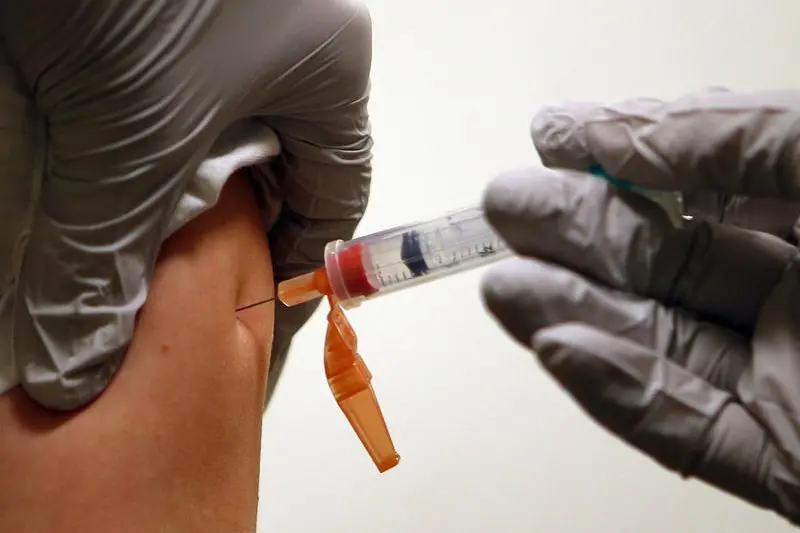PHOTO
The firm and its partners are investing up to USD 450 million on vaccines for meningococcemia, polio and HFMD.
Malaysia-based pharmaceutical company AJ Pharma Holdings is developing three halal vaccines with international partners at an investment of around USD 450 million, Managing Director Tabassum Khan said.
He told Zawya that the investment covered development of a halal meningococcal vaccine --which is required for Muslims travelling to Saudi Arabia for pilgrimage -- an animal source-free polio vaccine and a vaccine for hand, foot and mouth disease (HFMD).
"The total development costs may reach up to USD 450 million for three vaccines, including meningococcal vaccine, frequently used for all people visiting Saudi Arabia for Haj and Umrah," Khan told Zawya by email. "These are the vaccines which are considered the pivotal ones for the Muslims in general and pilgrims in specific."
Halal medical treatments are those that do not use any products forbidden under Islamic law, such as those derived from pork, or extracts from animals that are not slaughtered in accordance to sharia law. However, Islam allows for consumption of non-halal ingredients when necessary.
For the meningococcal vaccine, AJ Pharma is co-developing a synthetic conjugation process, which allows vaccines to be joined without an animal source, such as porcine trypsin, which is generally used.
The firm is also finalizing a licensing agreement for a polio vaccine free of any animal source and is co-developing a vaccine for Hand, Foot and Mouth Disease in collaboration with a Taiwanese company, Khan added, but did not name the firm.
AJ Pharma Holding was set up by Saudi Arabia's Aljomaih Group to focus on investments in the healthcare and biotechnology sectors in Malaysia. The firm has two subsidiaries - AJ Biologics, which is carrying out a project to set up the first vaccine formulation facility in Malaysia, and AJ Research and Pharma, which is establishing the first halal pharmaceutical and neutraceutical facility in Malaysia.
IMMUNIZATION
"We are already committing to a few developmental projects which would not only have importance for the Islamic world, but for the global market at large," Khan said on the sidelines of the Global Islamic Economy Summit (GIES) in Dubai earlier this month.
Khan said he became interested in halal healthcare because many people were refusing to immunize their children.
"There is already an anti-vaccine, anti-immunization campaign in the West with some pressure groups, and when you add religion on top of it, it is a disaster," he said. "From an Islamic perspective you are responsible for the health of your children and saving their lives. How do you do it -- by improving immunity."
Khan said that varying perceptions among what is permissible under sharia law was one of the obstacles to development of the halal pharmaceutical industry. Some sharia scholars have said that there should be standalone manufacturing facilities for halal vaccines to ensure they do not come into contact with any non-halal substance.
"If the religious body tells us that for a halal vaccine you need to have a stand-alone facility, it is not commercially viable. You will be spending something like USD 500 million on the development of the vaccine and another USD 200 million for setting up the facility...it is not commercially viable," he told a GIES panel on halal standards.
"No matter how big we talk, it is very difficult to attract investors to put the money. So we started analyzing the existing vaccines and you'd be surprised that about 25% of them already qualify as halal because there is no animal source in them."
Khan said that some Western companies that manufacture vaccines may be wary of using the halal label and prefer to use the term animal source-free vaccine, which meets increasing consumer demands and animal rights activity in the West.
"I am fine calling it animal source-free vaccine. You don't want resistance in this and you want the source to develop it also," he said. "If we have to develop halal in healthcare, it should be the same as the existing products or better. If it is inferior, it should not be done at all."
© Zawya 2015





















